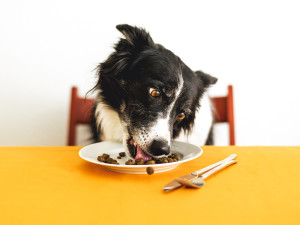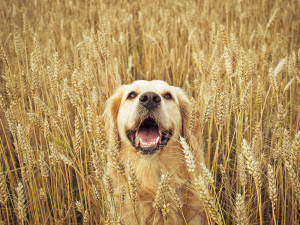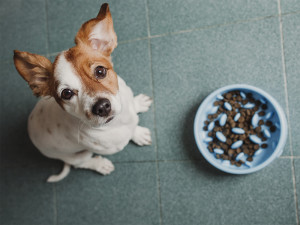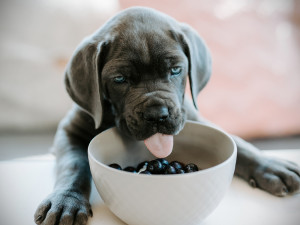How to Give Your Dog the Vitamins and Minerals They Need
Your pup needs their greens, too
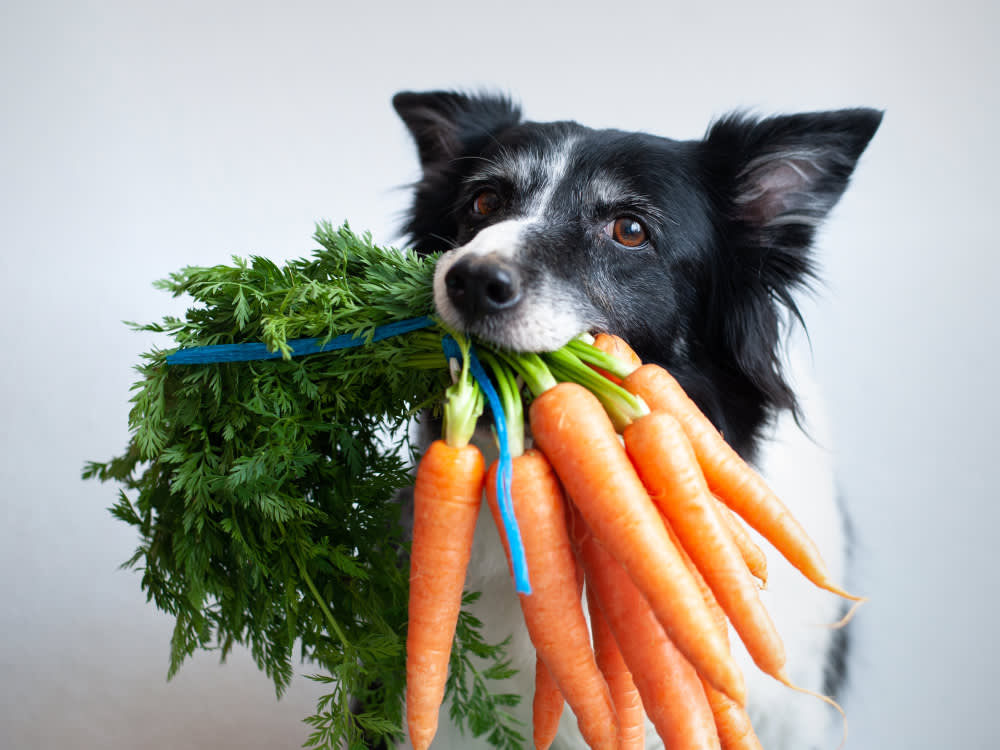
Share Article
We humans are obsessed with the latest superfoods – and rightfully so. Some of those snacks pack a major punch, and in a world of preservatives and confusing marketing, there’s no harm in wanting to stick to the classics. But what are the vitamin and mineral equivalents for dogs? Because they certainly deserve the best, too.
“Functional superfoods have the most beneficial effects on health,” says Dr W Jean Dodds. “They reduce chronic inflammation and promote healing; contain powerful antioxidant, antimicrobial and anti-tumour properties; and are even believed to delay ageing.” Serving your dog the vitamins and minerals in these essential canine functional superfoods will help your dog fight disease, boost energy and maintain good health and weight in general.
Below are vitamins and minerals your pup needs, plus how you can add them to your dog’s diet with superfoods.
Vitamins
Vitamin A
Add to your dog’s diet with: carrots, spinach, liver, pumpkin, sweet potatoes, fish oil, eggs and turnip greens.
Vitamin D
Add to your dog’s diet with: marine fish oil, fatty fish, egg yolks, dairy products, liver, beef and cottage cheese.
Vitamin E
Add to your dog’s diet with: plant oils, leafy green vegetables, seeds, wheat germ, bran, whole grains and liver.
Vitamin K
Add to your dog’s diet with: liver, leafy green vegetables, milk, cabbage and fish.
Vitamin C
Add to your dog’s diet with: fruit, vegetables and organ meats (offal).
Vitamin B
Add to your dog’s diet with: whole grains, nutritional or brewer’s yeast, liver, beans, green vegetables, spirulina, nuts and dairy products.
Macrominerals
Calcium
Add to your dog’s diet with: milk, yogurt, tofu, sardines with bones, raw bones, pak choi, green beans, broccoli and cauliflower.
Phosphorous
Add to your dog’s diet with: animal tissue, eggs, fish and milk.
Magnesium
Spinach, broccoli, green beans, tofu, tomato juice, beans, whole grains and seafood.
Potassium, sodium and chloride
Fruits, vegetables, milk and grain.
Microminerals
Zinc
Add to your dog’s diet with: spinach, broccoli, yoghurt, beef, poultry, whole grains and vegetables.
Sulphur
Add to your dog’s diet with: protein (meats, fish, poultry, eggs, legumes and milk).
Iron
Add to your dog’s diet with: red meat, fish, poultry, shellfish, eggs and legumes.
Iodine
Add to your dog’s diet with: iodised salt, seafood, dairy products and kelp.
Selenium
Add to your dog’s diet with: seafood, meat, whole grains, brown rice and vegetables.
Copper
Add to your dog’s diet with: seafood, nuts, whole grains, seeds and legumes.
Manganese
Add to your dog’s diet with: nuts, whole grains and leafy vegetables.
Chromium
Add to your dog’s diet with: lean meat, vegetable oils and brewer’s yeast.
Cobalt
Add to your dog’s diet with: liver, kidney, fruit and vegetables.
Fluorine
Add to your dog’s diet with: water.
Molybdenum
Add to your dog’s diet with: legumes, cereals and organ meats (offal).
Silicon
Add to your dog’s diet with: cereals, vegetables, beans and peas.

Claudia Kawczynska
Claudia Kawczynska was co-founder and editor-in-chief of The Bark for 20 years. She also edited the best-selling anthology Dog Is My Co-Pilot.
Related articles
![Owner serving dog food]()
Your Dog’s Food Aggression Isn’t Cute – Here’s How You Can Work On It
No longer associate feeding time with growling time
![Dog looks up at owner on a walk through the city]()
7 Ways to Stop Your Dog From Scavenging On Walks
If your dog tries to wolf down literally everything in sight, you need this advice
![Puppy eating a bowl of blueberries]()
10 Superfoods to Share With Your Dog
From kale to quinoa, these nutrient-packed picks deserve a spot in your dog’s food bowl

